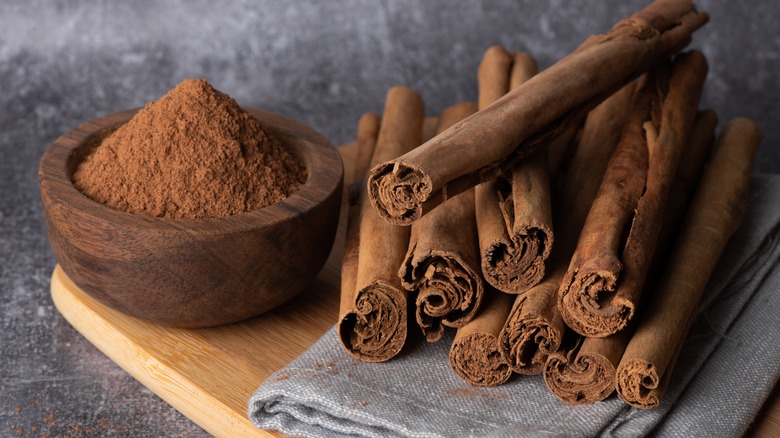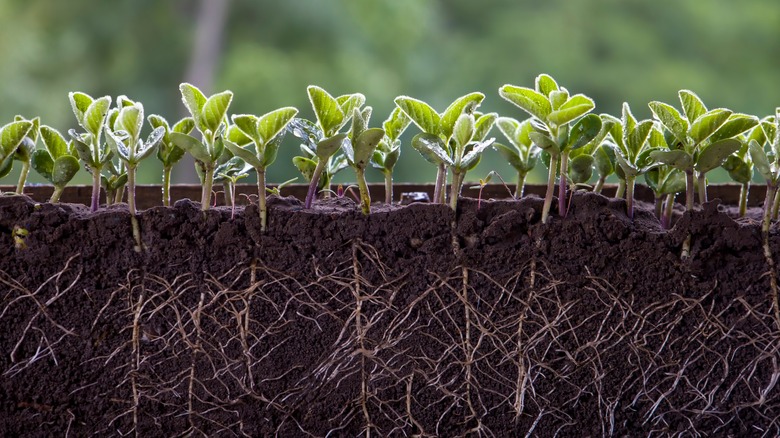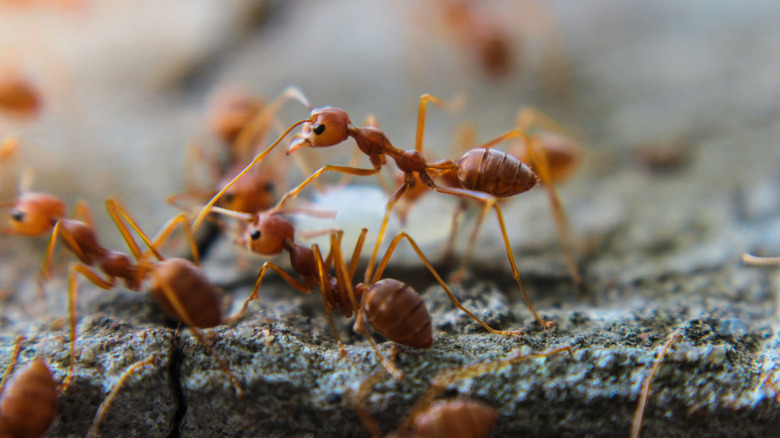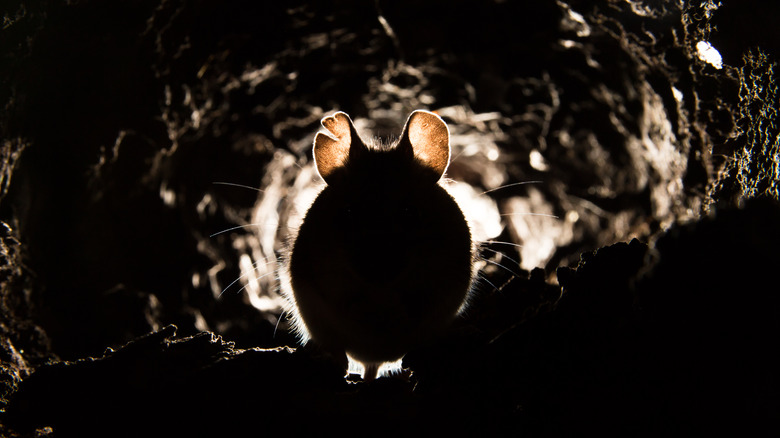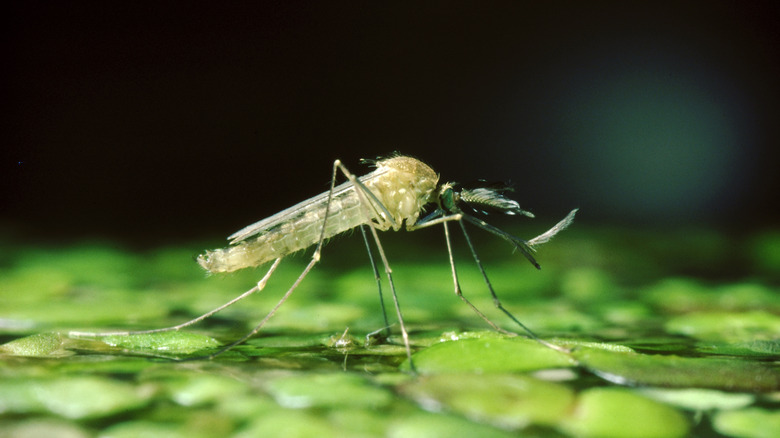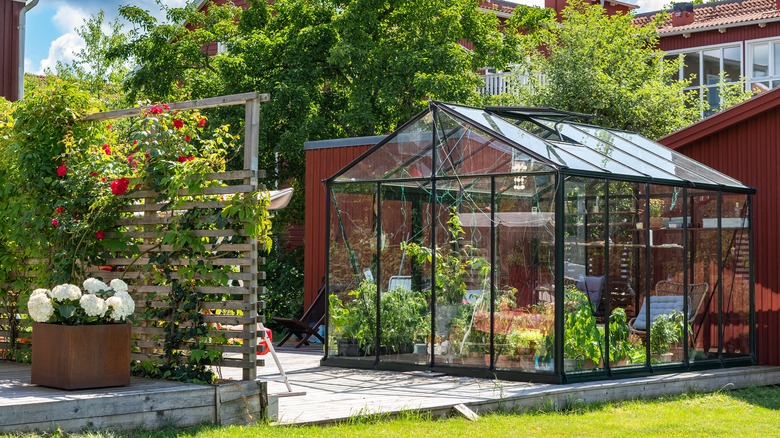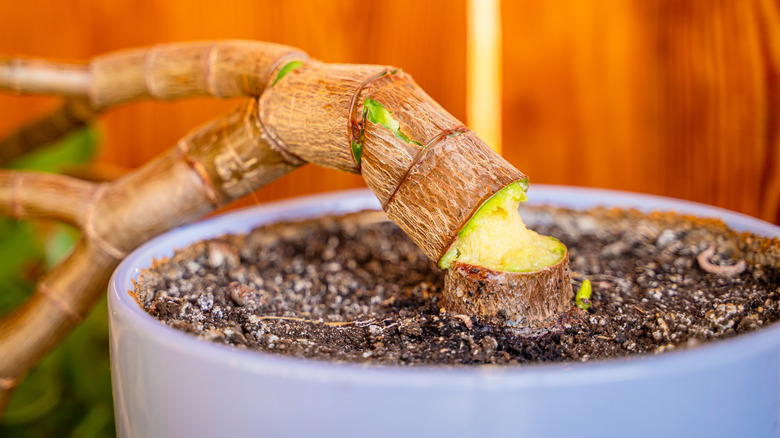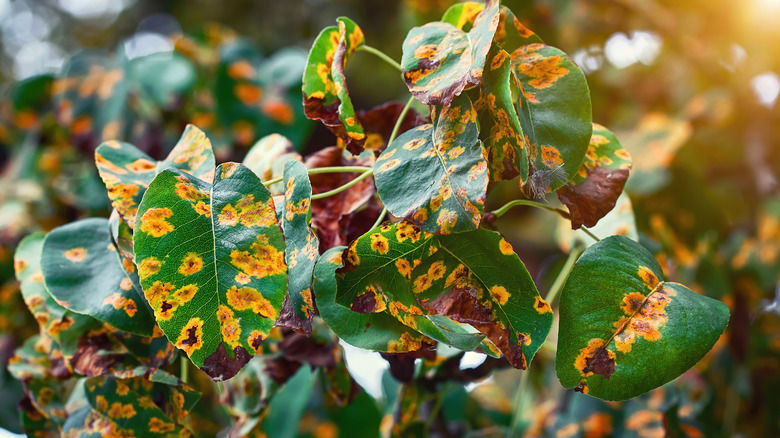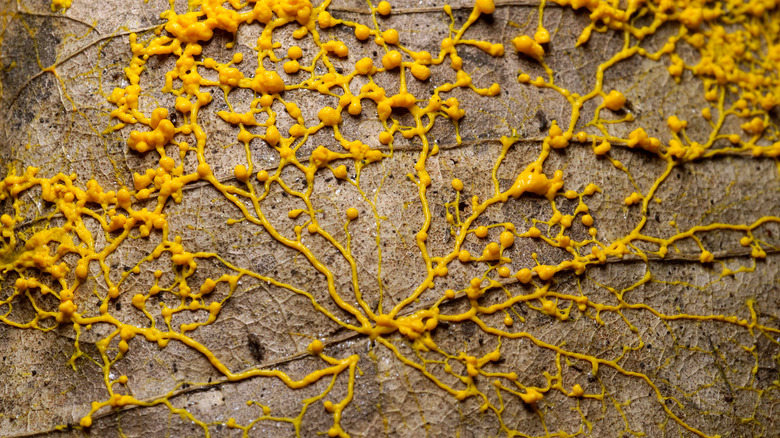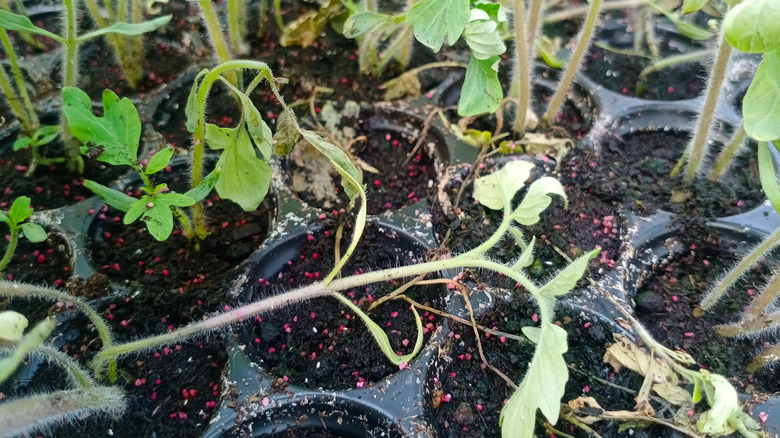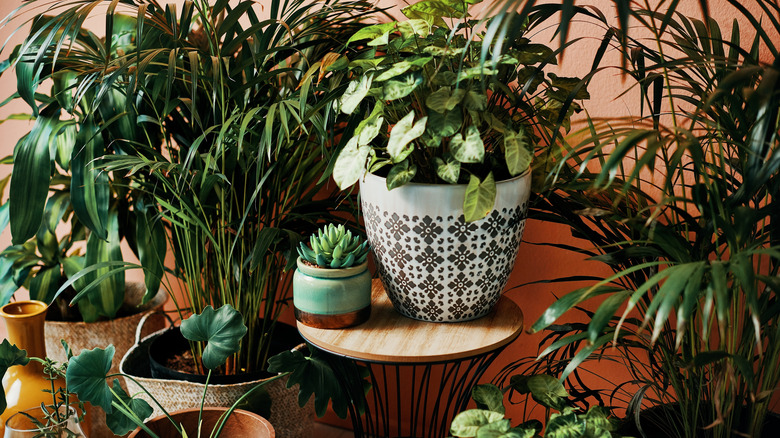10 Ways Cinnamon Will Work Wonders In Your Garden
Before you ever consider going to a garden center to purchase chemically enhanced fertilizers or pest repellents, you need to take into account the benefits of all-natural solutions. There is one, in particular, that is an extremely common ingredient in coffee shops and bakeries around the world, as well as in your household pantry. We are, of course, talking about the wonder that is cinnamon.
You are probably more familiar with its culinary uses than its application in your garden. Rest assured, however, that cinnamon has a variety of uses that will both boost the health and longevity of your plants, as well as keep some really aggravating pests out of your yard and garden.
You can use cinnamon in multiple forms in your garden. You can sprinkle it ground into your soil, rub it into roots, or shove it down ant hills. As an essential oil, cinnamon becomes a prime ingredient in the making of an all-natural, liquid pesticide. Whatever form you choose, this wonderfully aromatic spice will help keep your garden safe — and wonderfully fragrant — all season long.
Rooting agent
If there is one thing that simultaneously thrills and terrifies gardeners, it is starting seeds. At the beginning of the planting process, root development in seed starting is incredibly crucial, regardless of the crop you are planting. Unfortunately, as some gardeners have found to their dismay, roots have a mind of their own, and can often be tricky to grow. This is why you should consider using cinnamon as a rooting agent.
Whether it's a start you've grown fresh from seeds or a plant start you've purchased from a friend or garden center, it can sometimes be difficult for roots to take hold. Stalled root development could happen for any number of reasons. The soil or climate could be poor, or the plant could just be persnickety. Ground cinnamon will stimulate root growth for almost any plant. The spice will encourage the growth of new roots, and provide what is already growing with an added boost.
The best way to stimulate the roots is to apply the cinnamon directly. Take a spoonful of cinnamon and dust it onto a wet paper towel. Coat the bare roots of your starts in the wet cinnamon, and then immediately plant them in new soil. With luck, they should take hold and provide you with a healthy, thriving starter plant.
Ant deterrent
Of the multitude of pests that can run rampant in your garden, ants can be among the most devastating. Though they can often move about unseen, ants can do an incredible amount of damage to the roots and vegetation of your garden. Fire ants, in particular, are known to cause immense damage to gardens and gardeners when they invade. Fortunately, cinnamon is here to help.
It is not exactly known why cinnamon is so repulsive to ants, but we can take an educated guess and say that it is the strong scent that puts them off. The best application of using cinnamon to repel ants in your garden is to, once again, take some ground cinnamon and sprinkle it in long lines across your garden. Cinnamon oil, with its high concentration of scent, can also be used. However, ground cinnamon is much easier and more affordable to come by.
Another thing you could do to deter ants would be to try and get some cinnamon around the entrance of an ant hole. These holes lead to vast underground caverns filled with colonies. So, by spreading some cinnamon over the entrance, you are creating a repulsive environment for the ants. It is a fantastic way to get these pests to relocate in a hurry.
Rodent, rabbit, and deer deterrent
Much like the scent of garlic will deter common garden pests, so too will the strong scent of cinnamon ward off the likes of rats, mice, rabbits, and deer when applied to garden beds and any other areas where they proliferate. Though they are of different species, rats, mice, rabbits, and deer all have one thing in common — they have highly attuned senses of smell. The astringency of cinnamon is very likely to ward off these pests. The best part is that the cinnamon does not have any adverse effects on the plants.
One of the best ways that you can use cinnamon in this regard is to create an all-natural liquid pesticide. Cinnamon oil is really going to be best for this because it is going to mix better and provide a more pungent aroma than ground powder. However, if ground is all you have, it will work too. You can mix in clove and mint as well, as these are other scents that rats, mice, rabbits, and deer hate.
When you've made the mixture, apply it to the soil surrounding your plants, as well as the leaves and stems. Don't put it on the fruit, otherwise the cinnamon will leach into the skin and change the vegetables flavor. The scent should make your garden a lovely place for you to spend time, but will ward off these pests. You can also spray it around areas of your house where you've seen evidence of their presence.
Mosquito repellent
We cannot think of a single person who likes mosquitoes. These annoying and potentially dangerous insects can wreak havoc on a garden, but not in the way that you immediately think. They pose no real threat to plants, other than by laying their eggs in moisture pockets. No, the real threat of mosquitoes is the danger they pose to the gardeners. And while DDT bug spray is preferable to West Nile Virus, using natural repellents like cinnamon means that no nasty chemicals are coming anywhere near your body.
Cinnamon oil is once again going to come in handy. According to Healthline, cinnamon oil can actually destroy mosquito eggs when applied to nests. Better still, the oil can also act as a repellent for adult mosquitoes when applied to the skin, or even in the garden.
The straight cinnamon oil will need to be diluted before application, so you can use the same recipe you used to make the all-natural liquid pesticide we discussed in the last section. You can spray into the air, onto the stems and leaves of the plants, or directly onto your skin. Either way, it's going to ward off what has to be the most annoying pests ever to beset the good earth.
It's a greenhouse savior
If you are one of those gardeners fortunate enough to have a greenhouse, you will likely have encountered midges, white flies, gnats, mosquitoes, and other aggravating, flying insects. The environment of the greenhouse, while amazing for your plants, also provides the perfect protected, warm environment for these insects to lay their eggs, hatch, feed, and live out their lives in blissful gluttony. However, you cannot afford to have them buzzing around all season long, nibbling on your plants. That's why you've invested in cinnamon as a repellent, instead.
Here's the amazing thing about cinnamon in a greenhouse environment: there are so many different ways you can use it. You can sprinkle it ground on your composted soil and even spray the leaves and stems with that all-natural pesticide we've been talking about. You could also, if your greenhouse is hooked up to electricity, run a humidifier laced with cinnamon oil. The scent and spice in the air will really create an environment that will deter pests.
However, more than deterring them, an application of cinnamon will kill all of these insects and prevent them from laying eggs again. It is an amazing, all-in-one solution to any aggravating pests you may find buzzing around in your greenhouse.
Wound healer
Plant pruning is an important part of the lifecycle of healthy and orderly gardens and orchards. However, over-pruning can cause some damage, as can the results of a good wind storm. Plants can end up with a whole series of injuries, such as broken stems and bare roots, which can allow disease to enter and cause lasting damage. Once again, cinnamon is here to make a rescue.
Much like it stimulates the growth of roots, applications of cinnamon encourage healing in plants. It speeds up the process and also prevents any diseases from taking hold, as cinnamon is a particularly good fungicide. So, any funguses that might take over will be immediately set back by the introduction of cinnamon.
As earlier, ground cinnamon sprinkled onto a wet paper towel and applied as a poultice to the affected area is going to be the best option here. You could use the spray if you have nothing else, but the direct contact with pure cinnamon is really going to kick off the healing process and get things to where they need to be to ward off any potential disaster.
Rust preventer
Plant rust is one of the more easily identifiable fungal diseases. Affecting the exterior of plants, rusts are groups of funguses that take hold on leaves, stems, and sometimes the actual fruit of the plant itself, creating unattractive blotches and pustules on the plant. While it is not necessarily always the case, rust has been known to reduce plants' production, and is a very unattractive sight to find in your garden.
Cinnamon can help ward off rust when it is applied to the soil. You might think that spraying the leaves would be the way to go when it comes to removing rust, but the problem begins when rust funguses are present in the soil. So, by applying ground cinnamon directly into the soil surrounding your affected plant, you allow the spice to do its job and kill the fungus, thereby bringing the plant back to full health.
Cinnamon is a natural antifungal. It can be used to fight off more than just common plant rust. It makes cinnamon a great thing to have on hand, especially where harsh chemicals are so often used to treat any kind of fungal infection in plants.
Mold fighter
Apart from rust, there is a whole series of molds, funguses, and mildew that can affect plants. These molds, such as white mold, slime mold, mushrooms, and the like, will crop up in gardens that are showing signs of excess moisture. Now, while there is not much you can do about having a wet weather season, you can take into account the fact that cinnamon, thanks to its natural antifungal properties, will help ward off all of the different molds and funguses mentioned here.
Because mushrooms and other molds thrive in wet soil, it is imperative to mix cinnamon into your plant-feeding regimen. Even if the spice has been used previously to help stimulate root growth, reapplication in the soil as the plant is developing and thriving is also essential for keeping these funguses at bay.
Even if some of the aforementioned molds have taken hold, the cinnamon will work in the soil to ward it off and prevent it from taking over your plant ever again.
It prevents damping off disease
Damping off disease is another fungal infection that can take hold of plants very quickly. However, we single it out because, rather than attacking the roots and leaves of established garden plants, damping off disease goes after seedlings (via RHS Gardening). These plants have only just started to grow, and are at their most vulnerable. The fungus will grab onto the seedling, preventing it from reaching the height it needs to get light, and preventing the roots from taking hold in the soil in order to get nutrients. As a result, the seedlings will fall, or damp, over.
Thanks to cinnamon's role as an antifungal, having it in your soil with your seedlings will only benefit you. It will kill the fungus that causes damping off disease, thereby preventing it from taking any further action against your seedlings. Once the cinnamon has done that, it can then work its magic at establishing strong roots for your plants.
So far, we've seen how cinnamon can work wonders in the greenhouse, seed tray, and outside in the garden. However, there is one more category that can benefit from cinnamon. This will really give those who love having greenery inside something to smile about.
It's houseplant-friendly
You don't just need to use cinnamon on the plants you have outside. Houseplants will more than benefit from its use, too. Though you may need to apply it in different ways, the fact remains that cinnamon is only going to do your plants good, regardless of whether they're inside or outside. Whether it is warding off fungus on a lemongrass plant that is getting excess moisture from being near an air conditioner or a plant that seems to be attracting flies to your kitchen, cinnamon is going to help ward off any diseases and pests that could take hold of your plants.
The other benefit is the smell. We all love the smell of cinnamon when it comes to us in the form of baked goods. However, you will have it scenting off of your plants 24/7, which can only serve to help make your house smell absolutely amazing.
Cinnamon has many uses in the garden. We hope that you can now view this spice in a way that ensures its use in the garden, as opposed to just in your cooking.
